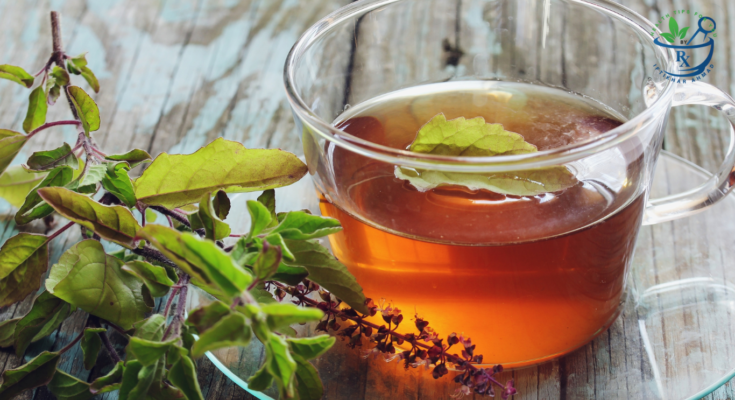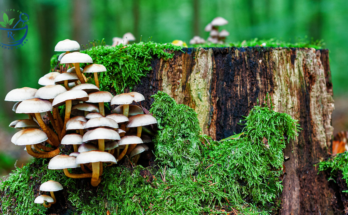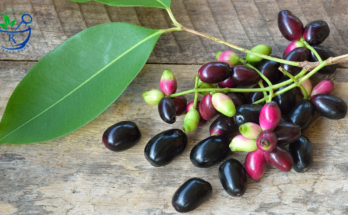It is known as Tulsi in India and is used in religious practices It also has medical values that are incomparable. As a healthcare professional, I am glad to walk you through India’s Best Tulsi Tea Selection, including its ingredients and tips on using these teas to boost your health.
The Marvel of Tulsi Tea
Tulsi also known as Ocimum sanctum is well renowned for its various health benefits as an adaptogenic plant. It is a herb, which has been included in Ayurveda for ages and which is popular for its healing and balancing properties. Drinking Tulsi tea is also one of the effective ways of incorporating this important herb into the regular diet.
Health Benefits of Tulsi Tea
- Stress Relief and Mental Clarity: Tulsi has numerous uses with one of the main ones being that it has adaptogenic effects which means that it supports the body in dealing with stress. It supports the adrenal gland and may help clear the mind, lessen anxiety and importantly, enhance cognition.
- Anti-inflammatory and Antioxidant Effects: Tulsi has high antioxidant properties, which help alleviate oxidative stress, inflammation and also the prevalence of chronic diseases like heart disease and diabetes.
- Immune System Boost: Tulsi has microbe inhibition, virus inhibition, and fungus inhibition and helps to increase immunity power.
- Digestive Health: Tulsi tea helps in promoting healthy micro-flora in the intestines and thus relieves signs of digestive disorders.
- Respiratory Benefits: With its expectorant action, Tulsi may be effective for treating respiratory issues such as asthma, bronchitis, and colds.
India’s Best Tulsi Tea Selection
India has a wide variety of Tulsi teas and they have different effects on the human body as well as different tastes.
1. Organic India Tulsi Original: India’s Best Tulsi Tea Selection
Composition: Sandalwood and neem Tulsi are two different types of Tulsi and as said above Meenakshi is a three-in-one – a combination of Rama, Krishna and van Tulsi. Every part has its taste, which also has nutrients that will make our system healthier.
Benefits:
Rama Tulsi:
It is widely recognized for having a subtle flavour and its effectiveness in helping one relax.
Krishna Tulsi:
Tastes somewhat like pepper, but is recommended for those with breathing problems.
Vana Tulsi:
Helps to develop appetite, taste and digestion, and effectively helps to maintain internal body temperature by giving a cooling sensation.
Usage Tips:
Try sipping Organic India Tulsi Original before starting your day, and you will be able to go about your business with ease. It can also be taken at night in a bid to relax the body.
2. Tulsi Green Tea: Second India’s Best Tulsi Tea Selection
Tulsi Green Tea from the Tea Trove is a special blend of teas that is used primarily for its therapeutic benefits.
Composition:
Gondeng Lokal – green tea leaves and a plant called tulsi. These blended up increase antioxidant effects and combining them produces a very effective health booster.
Benefits:
Green Tea:
It is well known for its product’s ability to melt fats away hence promoting weight loss as well as boosting metabolism and cardiovascular health.
Tulsi:
It has powerful adaptogenic and anti-inflammatory effects in combination with the other ingredients.
Usage Tips:
It is especially good for those who seek to improve their metabolism and have a digestion system that requires help in breaking down food. Consume it after lunch or dinner, ideally when your digestion is at its finest.
3. Kapiva Tulsi Giloy Tea
Composition:
Tulsi leaves with Giloy (Tinospora Cordifolia) is a new formula which is also added to cure the infection. It will help the body to be stronger and fight diseases while at the same time, it will help the body to eliminate toxins.
Benefits:
Giloy:
A plant which is a traditional Ayurvedic medicine and holds anti-inflammatory and immunomodulatory effects.
Tulsi:
Further enhances its antimicrobial activity and creates adaptogenic properties for clients.
Usage Tips:
Especially good in the preparation to raise your defences against colds and flu. It is recommended to take the above solutions once a day to boost the body’s immune system.
4. Himalaya Tulsi Green Tea: India’s Best Tulsi Tea Selection
Composition: A flawless synergy of Tulsi and green tea, although not as extraordinary as The Tea Trove offers has its taste due to the Himalaya’s concoction.
Benefits:
Green Tea:
Gives one a boost of caffeine while consuming antioxidants at the same time.
Tulsi:
Increases the overall value and contributes to overall health, making it ideal for consumption every day.
Usage Tips:
Drink this tea in your morning time for a natural energy pick-me-up that is not too intense. It is also perfect for use as an after-lunch boost.
5. Organic India Tulsi Turmeric Ginger Tea
Composition: A concoction that has Tulsi, turmeric and ginger that gives it immense strength. This combination is doubly useful because of its anti-inflammatory and stomach-soothing effects.
Benefits:
Turmeric:
Especially for its curcumin which has high anti-inflammatory and antioxidant properties.
Ginger:
Promotes the digestion of food can warm the stomach and prevent nausea.
Tulsi:
Catalyzes the potential general health boost that comes from this powerful cocktail.
Usage Tips:
This tea is best savoured during the evening when taken after dinner to help with digestion as well as alleviate inflammation.
Tips for Making the Perfect Cup of Tulsi Tea Using India’s Best Tulsi Tea Selection
To obtain optimum benefits from Tulsi tea, it is essential to prepare it well. Here are some tips:
- Use Fresh, Filtered Water: Factors such as the quality of water used in preparing the tea will determine the taste, flavour as well as health benefits that you get from the tea.
- Optimal Steeping Time: Prepare Tulsi tea by steeping it for 5-7 minutes in a cup of hot water. He explained that over-steeping can make it bitter while under-steeping can result in ineffective extraction of compounds that are beneficial to the body.
- Avoid Boiling the Leaves: This is because exposure of the plant to extremely high temperatures can destroy some of the more fragile compounds in Tulsi, especially when using boiling water.
- Add Natural Sweeteners: For those who want their tea to be a little more sweet add honey or stevia instead of white sugar. Thus, the addition of honey not only has special health qualities but also improves the taste of the preparation.
- Enhance with Lemon: Even a drop of lemon will enhance the antioxidant capability and offer a new, invigorating taste.
Integrating Tulsi Tea into Your Daily Routine
Morning Ritual
Begin your early morning with Tulsi tea to refresh yourself and boost your energy level. It can take the place of the morning caffeine fix, giving a mild lift without the slump.
Midday Refreshment
A cup of Tulsi green tea or Tulsi ginger turmeric tea can be an ideal cup of tea to take in the middle of the day. It helps in digestion and provides energy for the body throughout the day.
Evening Relaxation
Try a cup of Tulsi tea in the evening to soothe your nerves. Its calming effects can assist you in winding down for the day and getting ready for a peaceful night.
Conclusion
Tulsi tea, a very helpful beverage, can be consumed at any time during the day and offers health benefits. The various blends of Tulsi tea offer a range of options, allowing you to choose one that not only suits your taste preferences but also provides the right balance of health benefits. As a natural drink, Tulsi tea is particularly effective in enhancing immunity, promoting mental well-being, and potentially reducing inflammation in the body.
References
- Agarwal, P. K., Singh, A., Gaurav, K., Goel, S., Khanna, H. D., & Goel, R. K. (2010). Evaluation of wound healing activity of extracts of plantain banana (Musa sapientum var. paradisiaca) in rats. Indian Journal of Experimental Biology, 47(1), 32-40.
- Pattanayak, P., Behera, P., Das, D., & Panda, S. K. (2010). Ocimum sanctum Linn. A reservoir plant for therapeutic applications: An overview. Pharmacognosy Reviews, 4(7), 95-105.
- Cohen, M. M. (2014). Tulsi – Ocimum sanctum: A herb for all reasons. Journal of Ayurveda and Integrative Medicine, 5(4), 251-259.
- Jamshidi, N., & Cohen, M. M. (2017). The clinical efficacy and safety of Tulsi in humans: A systematic review of the literature. Evidence-Based Complementary and Alternative Medicine, 2017, 9217567.





